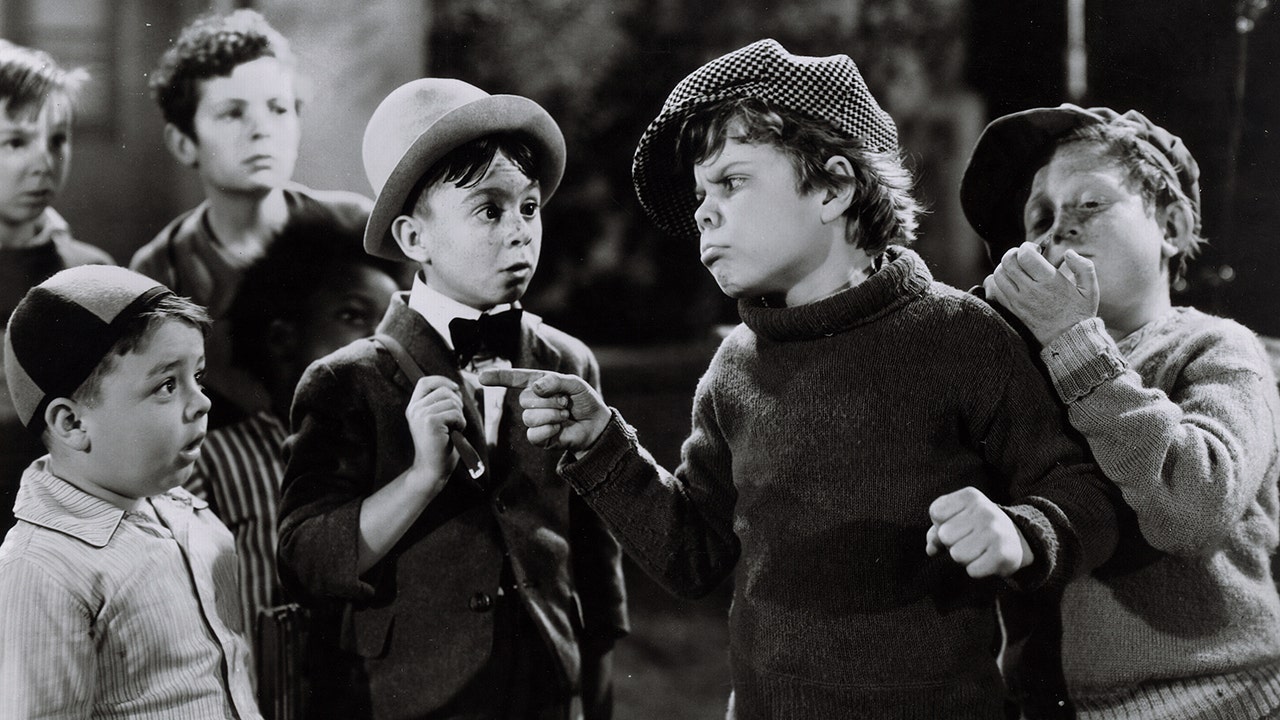Former US President Donald Trump departs following a campaign event in Wilkes-Barre Township, Pennsylvania, US, on Saturday, Aug. 17, 2024. Trump sought to tie Vice President Kamala Harris to high inflation during President Joe Biden’s administration, before pivoting to off-the-cuff criticisms, which he said allies have urged him to avoid. Photographer: Heather Khalifa/Bloomberg via Getty Images
In the immediate aftermath of the attempt on Donald Trump’s life it seemed that his second win was almost inevitable. The photograph shot from below in heroic mode with blood on his face, his fist in the air, secret service agents gathered around him and the US flag behind him was a perfect and potent mobilising image for contemporary American fascism.
But Kamala Harris’s clinching of the Democratic Party’s nomination, the choice of her running mate and the exuberance all this has generated in the November presidential race might just be what stops the fascist felon in his tracks.
Trump continues to enjoy the support of well-off people attracted to his authoritarianism, racism and xenophobia. He has also won the support of many working class and poor people whose lives have dramatically worsened over the years. In his speeches they hear the truth of their lived experiences, of the erosion of jobs and housing opportunities. They hear someone who seems more concerned about their bread and butter issues than Democrats, who have been accused of being more concerned with wokeness than the real-lived experiences people are contending with in a world where people are struggling with the high cost of living and a general social crisis, including an opioid epidemic.
Harris and her running mate, Tim Walz, will not convince hard-core Trump supporters to vote for them. But American elections are decided by swing voters in swing states and Walz, a white moderate from the Midwest, a former army officer and teacher and a man who loves hunting and fishing, will appeal to more moderate Democrats.
Although he comes from a moderate background he has a record of taking action in support of ordinary people and an article in the Jacobin described him as having “arguably the most progressive record of any elected Democrat in today’s political landscape”.
In striking contrast to Trump, Harris is a highly intelligent and competent person who attained a high level of education and professional success in a demanding field.
Her mission will be to get out those Democrats who were disillusioned by their party continuing to foist a man who was clearly out of his depth on them. African Americans have been feeling neglected and taken for granted by the Democratic Party, leading to many moving away from the party, and some towards Trump despite his racism. Her candidacy will undo some of this drift.
Some of the young people on university campuses around the US, who refused to stand by while Israel has continued to detonate and fire US made weapons on unarmed Palestinians, may see some hope in Harris for a different kind of US foreign policy.
Harris probably won’t stop sending US weapons to Ukraine and prevail on the presidents of Ukraine and Russia to realise that the only way this conflict will end will be through a negotiated settlement. She might be more open to pushing for dialogue, but the need for the US’s ally to come out on top might stop this.
Also, it is not clear whether she would concede to Russian demands for the North Atlantic Treaty Organisation (Nato) to stop its eastern expansion and to revoke the invitation it gave to Ukraine and Georgia. Harris might not want to be the president that stopped the West’s march in Eastern Europe started by Democratic royalty, Bill Clinton.
On Gaza, Harris has indicated that she will “not be silent” about the suffering there amid Israel’s war in the Strip. Despite expressing concerns over the deaths of “far too many civilians” in Gaza, she has nevertheless maintained that her support for the Israeli state is “unwavering”.
And therein lies the dichotomy and the continuity in policy. If Harris truly wanted to stop the suffering of the innocent Palestinians in Gaza she would say that her administration would stop funding Israel’s army and sending the very weapons Israel uses to kill and maim children and displaced people.
Were Trump to win the elections it is likely that he would support the end of the Russia-Ukraine war, as he has previously said he would. But this war has changed the dynamics of Europe and Nato since Trump was last in the White House. The Russia-Ukraine war has resolved some of Trump’s gripes with Nato.
Trump had wanted a Nato that was more engaged and where the European countries did not leave their security to the US and to foot the bill for the alliance. Since the start of the war in 2022 Nato has more member states, and all these countries are contributing more into its coffers than ever before.
Trump appears to have toned down some of his anti-allies rhetoric this time around. Also, his donors and those working behind the scenes to implement Project 2025 are part of the establishment that benefits from wars. They would not want him to stop this lucrative avenue for US weapons manufacturers.
On Gaza no resolution is likely to appear under a new Trump administration. The situation will probably get worse. In office he allowed Israel’s prime minister, Benjamin Netanyahu, to annex more Palestinian land in the West Bank so Israelis could build new settlements. He further inflamed the situation in the Middle East when he went against the United Nations and acknowledged Jerusalem as the capital of Israel. No country had done this since the creation of the state of Israel in 1948 in recognition of the disputed claims to Jerusalem.
The current tensions in the Middle East caused by the ongoing war on Gaza and exacerbated by Israel’s assassination of a Hamas leader on Iranian soil are likely to lead to a wider regional war. Whether Harris or Trump wins in November it is unlikely that these tensions will cease any time soon. The increased armament of Israel in anticipation of an Iranian retaliatory strike is further aggravating the situation, where a slight miscalculation can result in American boots being once again in the Middle East.
It would nevertheless be good to hear what Harris has to say about foreign policy. But the machinery around her is continuing with the same tactic it had for Biden: cloistering her away from any interviews. It is not enough for Harris to only give speeches. Interviews where she can lay out her policies and differentiate herself from Biden are crucial.
The Harris/Walz campaign currently has momentum on its side. It should not squander it. Trump’s campaign, on the other hand, is now looking like a fish out of water. The energy he seemed to ooze against Biden has dissipated. Harris looks younger, fresher, more energetic and for the future. Trump looks old, staler, lethargic and of a bygone era.
China is one area where there is likely to be a difference of approach if Harris wins. She has a running mate in Walz who is known to be open to compromise. Walz who is known for having nuance and being people-centred might be the ideal person to discharge on this part of the world. Having lived in China and being a fluent Mandarin speaker he is in a better position than any former US vice-president or state secretary to understand the people of China and to see them as more than just adversaries. Walz might be Harris’s trump card in ensuring that Washington and Beijing find each other and find a way of working together without ratcheting up the tension between the two countries.
Were Trump to win however, we are likely to see increased military spending and the protraction and acceleration of war around the world. It is almost a given that the South China Sea will be the next theatre of conflict as a new Trump administration will probably go to the old playbook of protectionism, race-baiting and wanting to show its dominance and superiority to China.
For the most pressing conflicts in the world right now, whether Harris or Trump wins, there will be more continuity than change.
Nontobeko Hlela is a research fellow with the Institute for Pan African Thought & Conversation and a PhD candidate in the Department of Politics and International Relations at the University of Johannesburg.





















Discussion about this post